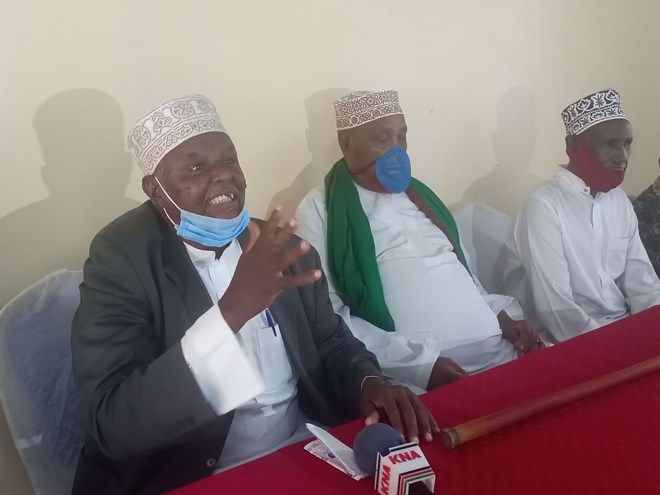Garissa elders have welcomed the move by the government to close Kakuma and Daadab refugee camps.
They said they are concerned by the political intrigues in Somalia that followed President Mohamed Farmaajo’s move to extend his term by two years.
Speaking on Monday at a hotel in Garissa, the elders led by the Kenya Livestock Marketing Council chair Dubat Amey said the political standoff between President Farmaajo and the opposition in Somalia could trigger a war that will have a spillover effect into Kenya.
“As the residents bordering Somalia, we know the pain of hosting refugees and we welcome the government’s move. It is time that Somalia faces the consequences of their own political actions without affecting us,” Amey said.
He said Kenya cannot continue bearing the consequences of the poor leadership of Somalia.
“The Somalia President should strengthen the country’s institutions to promote peace and democracy and should stop extending his term and allow elections to be held. We also ask the opposition leaders to embrace negotiations and find a way to hold their presidential election,” he said.
The Kenya government rescheduled its planned closure of refugee camps to June next year following discussions with UNHCR officials to stagger the shutdown.
The rescheduled plan will allow refugees to leave gradually rather than in masses.
At least 15,000 refugees will be relocated every month, either to return to their homelands or be resettled elsewhere.
The decision arose from last-minute lobbying by UNHCR boss Fillipo Grandi, who held discussions with Interior Cabinet Secretary Fred Matiang’i and his Foreign Affairs counterpart Raychelle Omamo. He also met President Uhuru Kenyatta.
Interior Principal Secretary Karanja Kibicho said the decision is the last considerate move by Kenya to stay within international law as well as protect its national security interests.
“We have been sheltering refugees for over 30 years, and our capacity to host them longer under minimum standards of humanitarian action has been overstretched.”
“The decision to close Dadaab and Kakuma camps by June 30, 2022, is in our country’s public interest,” Kibicho said.





